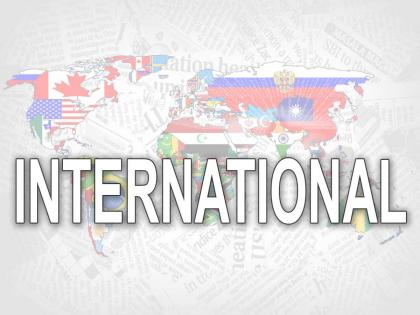Myanmar not cooperating in Rohingya probe: International court
By IANS | Published: February 4, 2020 10:04 PM2020-02-04T22:04:39+5:302020-02-04T22:15:04+5:30
Myanmar is not cooperating with the International Criminal Court in its investigation into alleged crimes against humanity committed against Rohingyas, an ICC official said on Tuesday.

Myanmar not cooperating in Rohingya probe: International court
"In an ideal situation, we should be able to go to Myanmar and collect the information. But unfortunately, we are not able to do so because Myanmar is not cooperating with us," Efe news quoted Phakiso Mochochoko, Director of the Jurisdiction, Complementary and Cooperation Division of the ICC office of the prosecutor, as saying to reporters in Dhaka.
"We all agree this is a challenge but it is not an insurmountable challenge ( ) this in itself will not result in the office not being able to investigate and prosecute."
Mochochoko said they had faced similar situations earlier when countries refused to cooperate and denied ICC prosecutors an entry into their territory but they were still able to complete investigations.
The noncooperation of Myanmar will only affect the timing but not the trial, he said, after leading a team of investigators in Rohingya camps in Bangladesh to collect the evidence during his ongoing visit.
"It is going to affect us into the issue of timing. That is going to take us a little bit longer than maybe we could have if we were able to go to Myanmar," he said.
"It is three years since the crimes were committed, but justice will still be done. It may take a year, it may take two years, it may take another three years, but ultimately justice will be done," Mochochoko said.
The ICC, based in The Hague, authorized on Nov.14 last year a petition from the prosecutor's office to investigate the alleged crimes committed against the Rohingyas by the Myanmar army.
The court concluded that "the chamber accepted that there exists a reasonable basis to believe widespread and/or systematic acts of violence may have been committed that could qualify as the crimes against humanity of deportation across the Myanmar-Bangladesh border and persecution on grounds of ethnicity and/or religion against the Rohingya population".
Myanmar is not a member of the Rome Statute, a treaty that established the ICC. So the court would not have jurisdiction in the Asian country.
However, judges authorized the investigation because it is alleged that at least part of the crimes was committed in Bangladesh, one of the 122 member countries of the Rome Statute and which recognizes the jurisdiction of the ICC created in 2002.
Earlier in January, the United Nations' International Court of Justice directed Myanmar to prevent the alleged genocide against the minority community.
The court granted a series of emergency steps requested by the mainly Muslim African state of The Gambia under the 1948 Genocide Convention.
The court said Myanmar must "take all measures within its power to prevent the commission of all acts" described by the convention.
Nobel Peace Laureate Aung San Suu Kyi and de-facto leader of Myanmar defended her country in the ICJ, also based in The Hague.
Nearly 738,000 Rohingya refugees are living in camps in Bangladesh since Aug. 25, 2017, following a wave of persecution and violence in Myanmar that the UN has described as a textbook example of ethnic cleansing and possible genocide.
Myanmar does not use the Rohingya term and also doesn't recognize them as its citizens, arguing that they are illegal immigrants from Bangladesh.
( With inputs from IANS )
Open in app